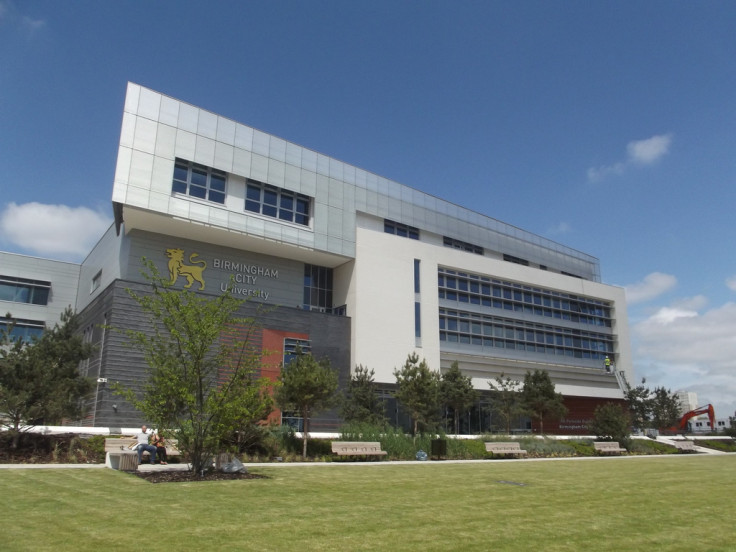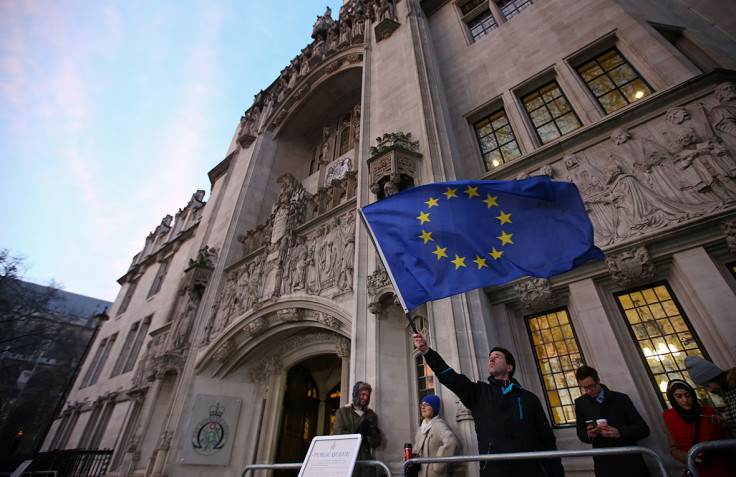Birmingham City University research group set up to provide a blow-by-blow account on Brexit
University will track every twist and turn of the Brexit debate, whether it lasts two years or a decade.

Birmingham City University's Centre for Brexit Studies has been set up to provide a running commentary on the biggest political event in a generation.
In this regard the college's second city has stepped up to do something that Prime Minister Theresa May swore she would never do.
Professor Alex De Ruyter, director of research at the University's Business School, said: "Brexit presents a unique set of challenges and opportunities for the UK and it is important that people are seriously looking into all areas of the process."
"The event covers a number of issues from economics, the legal ramifications, culture and even the environment, if you look as issues such as air quality or energy policy."
Earlier this month May set out her broad principals for leaving the European Union (EU), which includes exiting the Single Market and seeking only limited access to the Customs Union.
The Prime Minister said this would allow her government to bring immigration and lawmaking under UK control and would also leave the country free to negotiate its own trade deals.
But in a blow to the government's plans the Supreme Court also said last month that Parliament must vote on whether the government can start the Brexit process.
The May government has since drawn up a draft Brexit bill and is still expected to trigger the Article 50 break clause by the end of March as planned, followed by departure two years later.

But Alison Young, professor of public law at the University of Oxford speaking at University's Brexit Studies launch last week said the Supreme Court ruling may have a profound effect on the UK's the divorce from the EU that some say could last a decade.
"The Supreme Court said that Parliament is that senior partner when it comes to making British law, and government is the junior partner," said Young.
Fractious MPs
Most MPs have said they will not vote against the democratic referendum to leave the EU, but Young says the court ruling does give parliamentarians the right to make amendments and delay the government's tight timetable. This may mean fractious MPs may insist the government retains closer links to the EU than it had intended.
Young also points out that the judiciary may be asked to make political decisions on Brexit between the Leave and Remain sides.
Newspapers calling High Court judges 'enemies of the people' after the original ruling on triggering Brexit went against the government in November, has little recent precedent.
Young said: "The courts may be asked to come down on a political decision between two sides a number of times over the coming years. They have shown that they will not do that. They will not make a judgement of the wisdom of a policy, only how that policy should be legally administered."
Dr Stefania Paladini of University's Business School is just one of those who says it may take ten years or more for the UK to exit its 43-year-old relationship with the EU and forge new trading agreements.

Paladini has experience of the painstaking back-and-forth that striking a trade deal entails. She was previously an Italian trade commissioner in Honk Kong and later China.
She said it took 10 years for Canada to negotiate a trade deal with the EU that cut out 98% of tariffs between both parties.
Tolerant debate
"These things take a long time because there are a lot of moving parts and interested parties to consider," said Paladini. "There is no such thing as a quick fix."
De Ruyter, who help set up the research centre from established government and charity funding sources, said it took around four months to establish the body after the referendum vote last June.
"It was around November, before the idea got off the ground after talking to a number of colleagues," he said. De Ruyter added it was always clear they would welcome contributions from the Leave and Remain side, and as a result were spared threatening emails from one side or the other. We are an academic institution and we welcome open and tolerant debate," he said.
The centre plans to hold an open meeting on the first Friday of each month on the latest twists and runs on the Brexit process. If these meetings remain 'open and tolerant' for the next two years and more, that will be quite some feat in itself.
© Copyright IBTimes 2025. All rights reserved.






















